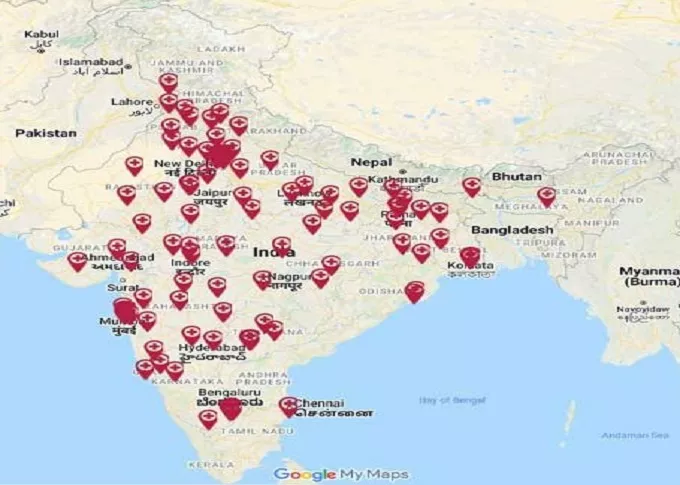What is a Period Calculator?
A period date calculator is an online tool that helps women forecast the next period date based on information about previous cycles. It can tell the period's start and end dates and determine days when one is more likely to get pregnant. This tool may be useful for those with irregular periods since it gives better predictions than manually calculating the next period date.
Calculate Now!
Myth: Period calculators can predict your start date with 100% accuracy.
Fact: They estimate based on your cycle length, but variations can lead to discrepancies.

Myth: Period calculators can predict your start date with 100% accuracy.
Fact: They estimate based on your cycle length, but variations can lead to discrepancies.
How Do You Calculate a Menstrual Cycle and Menstrual Period?
Many people get confused between the terms ‘menstrual cycle’ and ‘menstrual period’, and often use it interchangeably. But there is a difference. The menstrual cycle is the time between the first day of your period and the first day of your next period. During this duration, the body undergoes hormonal changes, ovulates, and if fertilisation doesn’t occur, sheds its uterine lining resulting in periods. The menstrual cycle can vary between 22 to 25 days normally.
On the other hand, the menstrual period is when the uterine lining sheds, mixes with various body fluids and comes out of the body in the form of period blood. This usually lasts for 3 to 7 days. You have to count the day you start bleeding to the day your bleeding recedes or stops completely to know the length of your menstrual period.
Knowing this information can help you estimate when your next period is likely to begin. In case the duration of the menstrual cycle differs every month, then take an average of your last few cycles.
Understanding the Phases of the Menstrual Cycle
The menstrual cycle may be divided into four primary phases:
- Menstrual Phase : This phase is characterized by bleeding. The lining of the uterus sheds off, and this flow constitutes the menstrual blood flow.
- Follicular Phase : This phase somewhat overlaps the menstrual phase. The pituitary gland releases FSH (follicle-stimulating hormone), which stimulates the ovaries to produce follicles, each containing an egg.
- Ovulation Phase : LH or luteinizing hormone surge causes the release of a mature egg from the ovary.
- Luteal Phase : The empty follicle turns into the corpus luteum and starts producing progesterone to thicken the uterine lining in anticipation of a potential pregnancy.
Signs Your Period Is Coming
If you are suffering from some of the following symptoms, then you may be experiencing premenstrual syndrome (PMS):
- Cramps : Mild to severe cramping in the lower abdominal area.
- Bloating : Feeling of fullness or swelling of the stomach.
- Breast Tenderness : Breasts become sore or swollen.
- Acne : Hormonal variations can cause acne, which often manifests as red pimples on the lower face that disappear after menstruation.
- Mood Swings : Irritability, anxiety, or mood swings.
- Headaches : Hormonal changes trigger migraine or headaches.
- Fatigue : You will constantly feel very tired or exhausted.
Causes of Delayed or Missing Periods
- Pregnancy : This is the most obvious reason for missing a period.
- Birth Control : You may experience a change in your cycle when you either stop or start birth control.
- Stress : High levels of stress can alter hormonal balance.
- Weight Changes : Substantial weight loss or weight gain can affect the menstrual cycle.
- Menopause : While early menopause (POI) can start as early as 40, menopause often happens between the ages of 45 and 55.
Why is Menstrual Period Important to Track?
Calculating your periods is very instrumental to your reproductive health. This helps in ascertaining the irregular patterns that may indicate some underlying health problem. Here are some ways in which tracking menstrual period can help:
- Period Date Prediction : Keeping track of menstrual periods can help people know when the next period is due, which makes it easier to plan events, holidays, or other activities during this time.
- Irregularity Detection : Provides indications of irregularity in the cycle, which may indicate any disorder in health.
- Pregnancy Planning : Enables understanding of the fertile window and days of ovulation.
- Symptoms Management : Prepare better for symptoms of PMS.
- Monitoring health : Tracing menstrual periods can be one way to monitor general reproductive health and, specifically, be on the lookout for alterations or problems that could mean an alert for medical attention.
- Lifestyle Planning : Enables one to plan vacations, events, or activities without the surprise of an unexpected period.
- Medication Scheduling : This helps in timing medications like birth control or fertility treatments.
What are the Benefits of Using a Period Calculator?
The following are some advantages of using a period cycle calculator:
- Accuracy : Give you a more accurate calculation for when your next period is due.
- Convenience : You find a period calculator online quickly, and it is quite user-friendly.
- Health Insights : Gives you insight into your menstruation and patterns in your cycle.
- Pregnancy Planning : Use it to determine the best days for conception.
How Does a Period Calculator Calculate the Menstrual Cycle and Length?
The period calculator calculates the cycle and its length for better understanding. Here's how it works:
- You will have to provide details regarding the first day of the period and the average cycle length.
- After entering data into the calculator, it makes use of such data to predict the expected cycles of menstruation.
- This helps in predicting the start date of the next period, and fertile window, and helps in natural family planning from the data gathered.
- Many websites and mobile applications offer period calculators that help trace and predict periods.
Pregnancy Calculator Tools for Confident and Stress-Free Pregnancy Planning
Get quick understanding of your fertility cycle and accordingly make a schedule to track it
Get a free consultation!




 Prev
Prev









